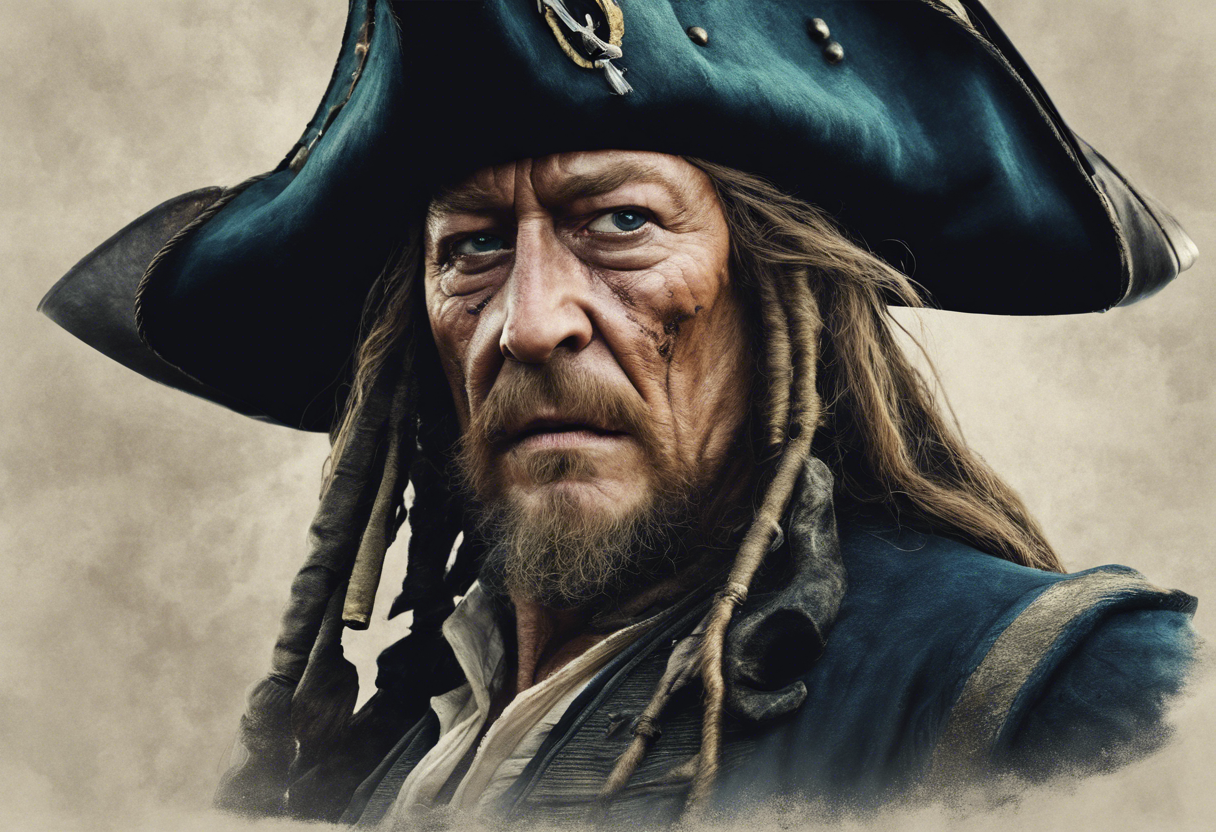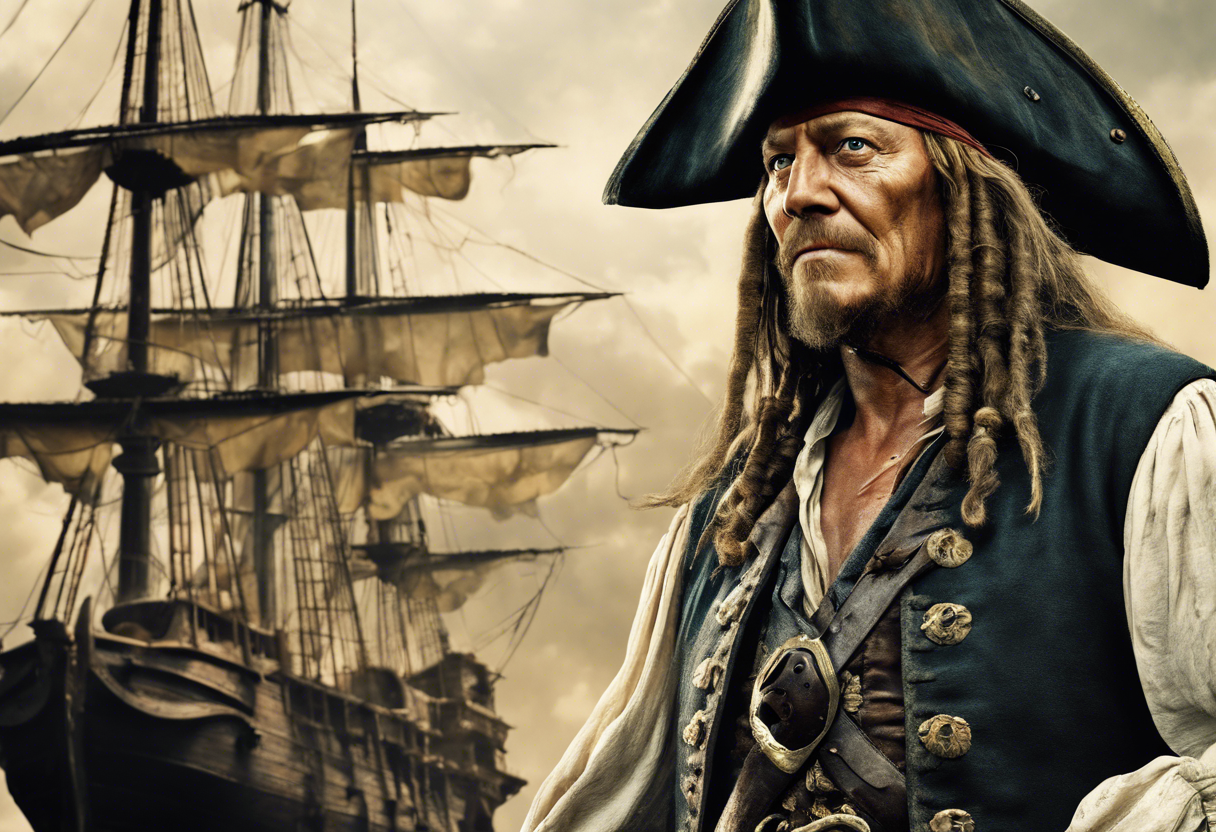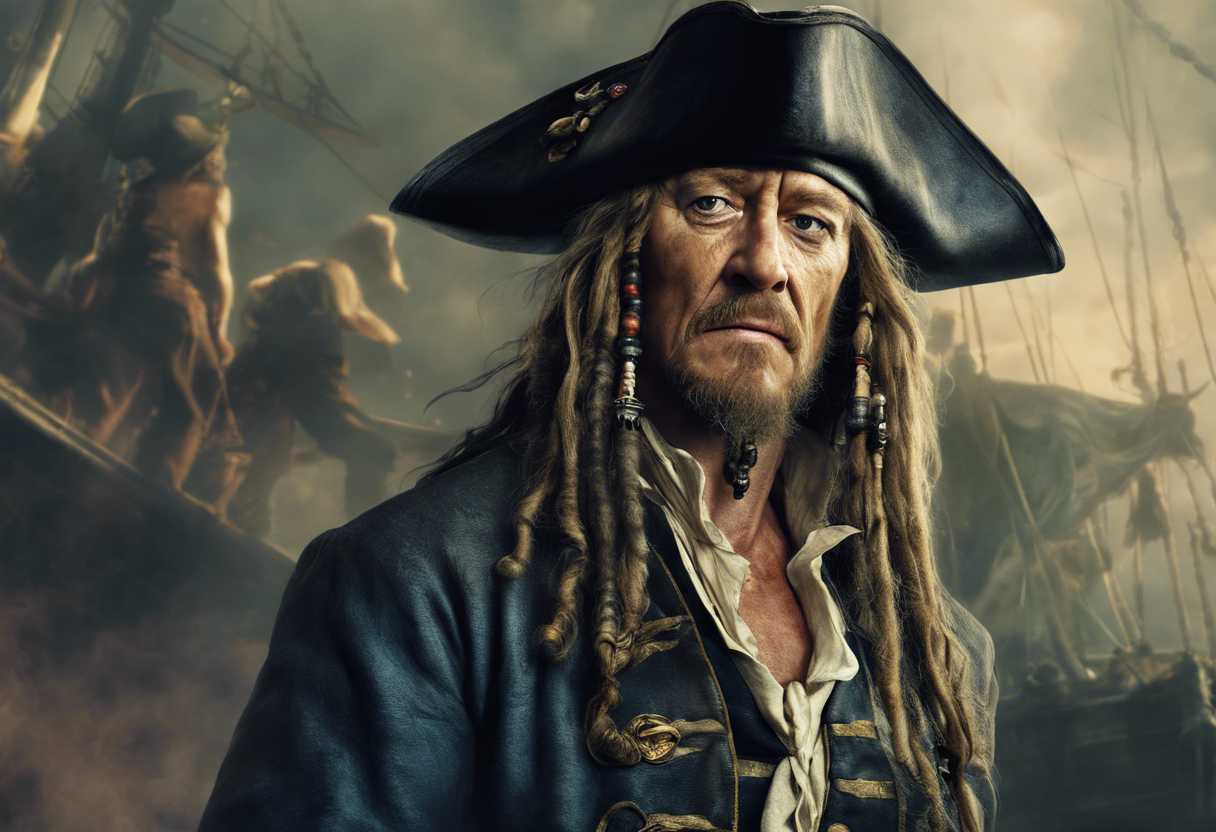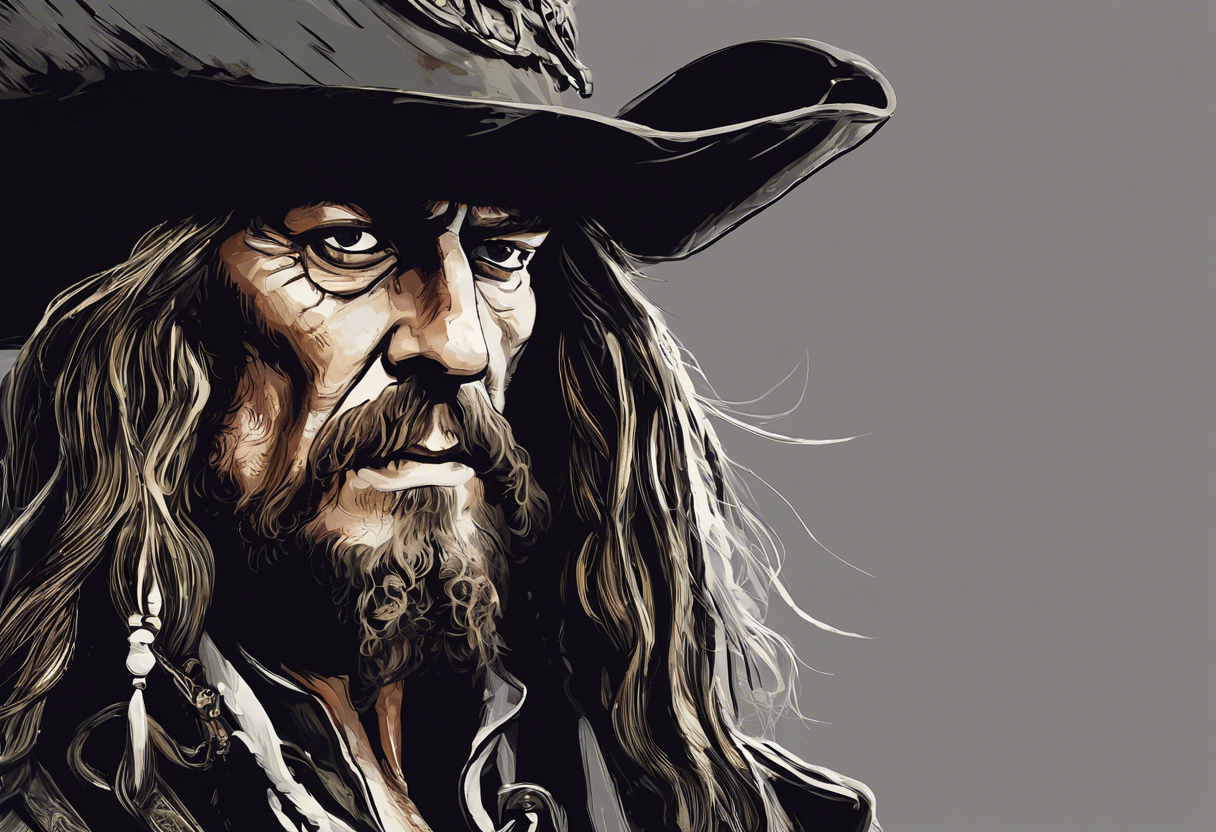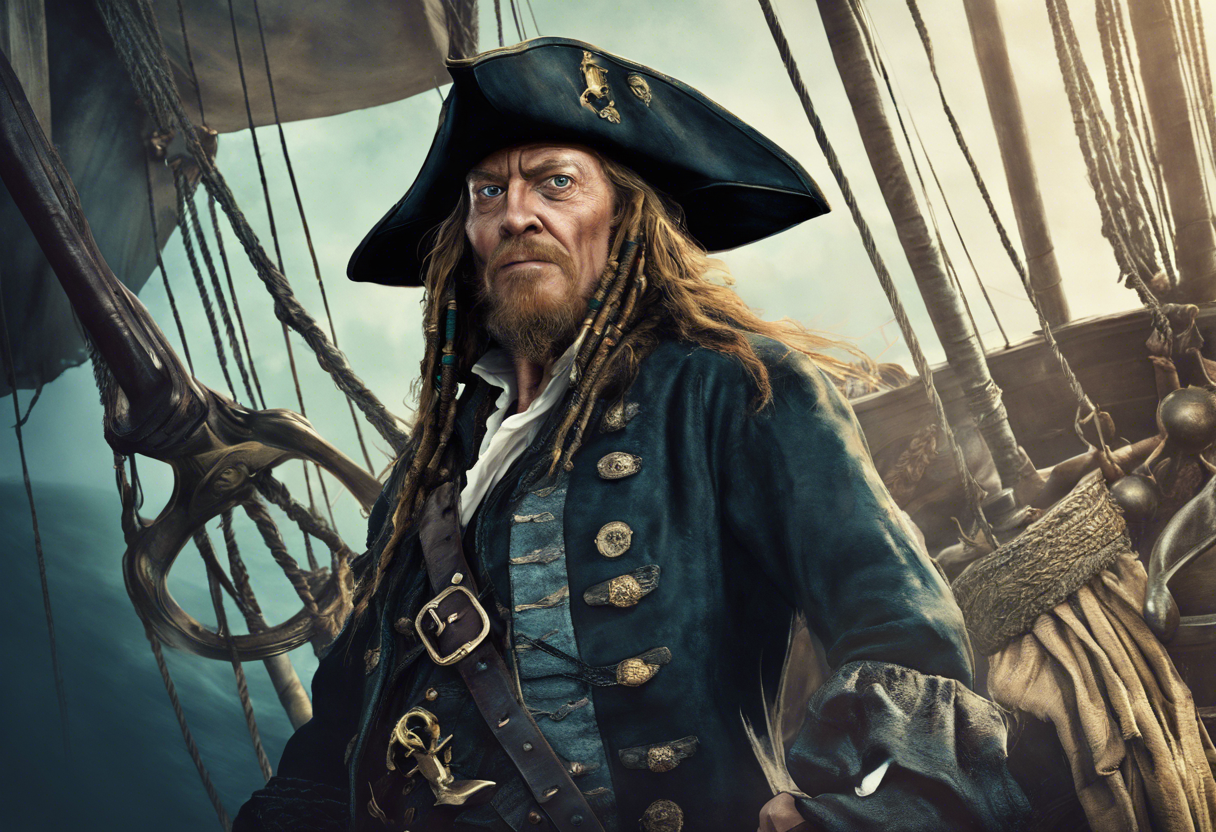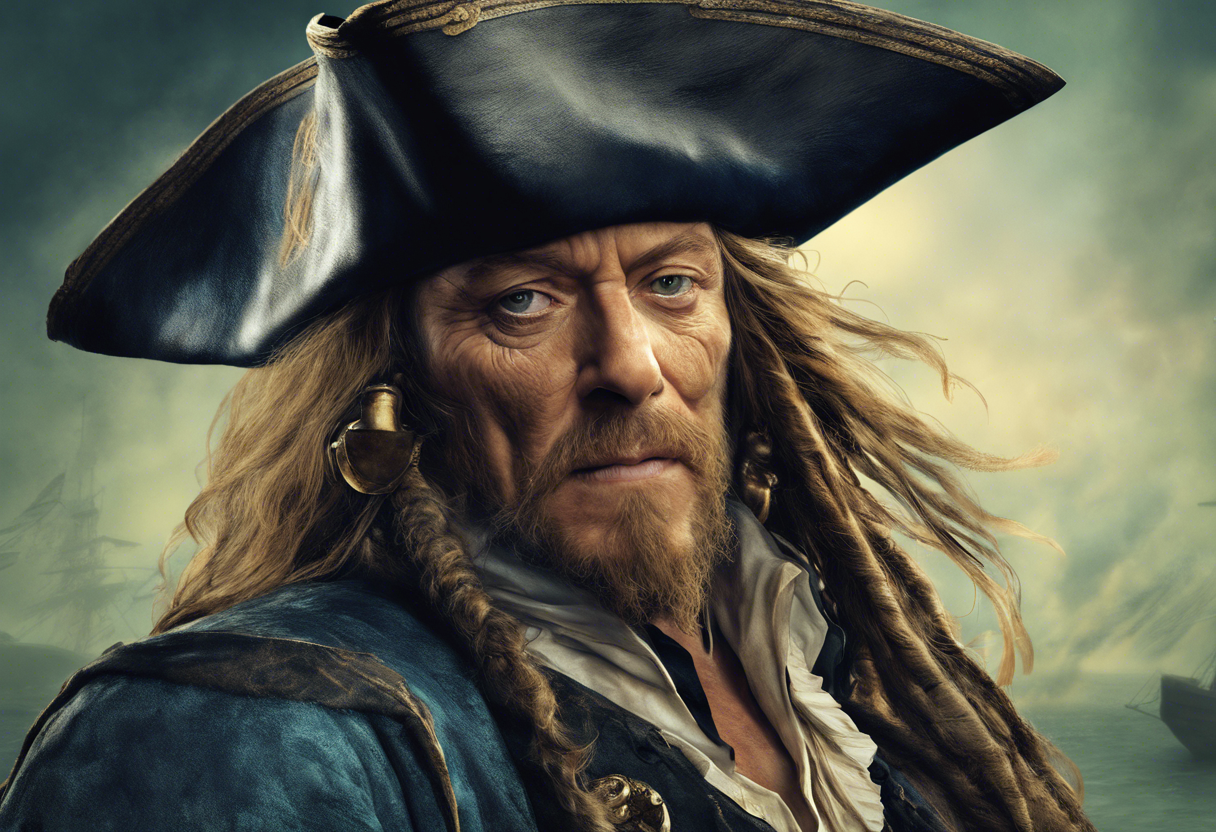Contents
Hector Barbossa: The Complex and Charismatic Pirate of the Caribbean
Introduction
Captain Hector Barbossa is a pivotal and intriguing character in the Pirates of the Caribbean franchise, brought to life by the acclaimed actor Geoffrey Rush. First appearing in The Curse of the Black Pearl (2003), Barbossa has since become a central figure in all five films of the series. Created by screenwriters Ted Elliott, Terry Rossio, Stuart Beattie, and Jay Wolpert, Barbossa’s character is a masterful blend of cunning, charisma, and complexity.
Barbossa’s backstory, largely developed by Geoffrey Rush, paints a picture of a man born to an impoverished Portuguese noblewoman in Lisbon, Portugal, although his accent suggests a possible Cornish origin[1][3] . At the age of 13, he ran away from home to escape poverty and pursue a life at sea. Initially aspiring to be an honest sailor, he was drawn to piracy after realizing the grandeur and wealth that came with it.
Role in the Story
The Curse of the Black Pearl
In the first film, Barbossa is introduced as the captain of the Black Pearl, a ship he commandeered after leading a mutiny against its former captain, Jack Sparrow. Barbossa and his crew are cursed, turning them into undead skeletons at night after stealing the gold from the Chest of Cortez. The curse can only be lifted by returning all 882 gold medallions to the chest and offering their blood[1][3].
Barbossa’s primary goal is to break the curse, which involves finding the last medallion and the child of Bootstrap Bill Turner, Will Turner. He kidnaps Elizabeth Swann, believing her to be Bootstrap’s daughter, but later discovers that Will is the true heir. The film culminates in a duel between Jack Sparrow and Barbossa, during which Will breaks the curse, and Barbossa, now mortal, succumbs to his wounds[1][3].
Resurrection and Later Adventures
Despite his death in the first film, Barbossa is resurrected by Tia Dalma by the end of Dead Man’s Chest and returns in an anti-heroic role. In At World’s End (2007), he is one of the nine Pirate Lords of the Brethren Court, playing a crucial role in the battle against the East India Trading Company[1][4].
In On Stranger Tides (2011), Barbossa becomes a privateer in the service of King George II and the British Navy, tasked with guiding Jack Sparrow on an expedition to find the Fountain of Youth. Here, he seeks revenge against Blackbeard, who had attacked the Black Pearl and left him with a missing leg[1][3].
In Dead Men Tell No Tales (2017), Barbossa has transformed into a rich and influential pirate, leading a prosperous pirate empire. He also discovers he has a daughter, Carina Smyth, and plays a key role in the quest to find the Trident of Poseidon[1].
Character Analysis
Hector Barbossa is a multifaceted character, often described as a "dark trickster" and the evil counterpart to Captain Jack Sparrow[1][4]. His personality is marked by cunning, ambition, and a deep sense of survival instincts. Barbossa’s motivations are driven by a desire for power, wealth, and revenge, yet he also exhibits moments of loyalty and honor.
One of Barbossa’s greatest strengths is his ability to adapt and survive in any situation. He navigates the complex world of piracy with ease, often using his wit and charm to manipulate others to his advantage. However, this adaptability also highlights his flaws; he is willing to betray and manipulate others to achieve his goals, making him a morally ambiguous character.
Throughout the series, Barbossa undergoes significant development. He transitions from a primary antagonist to an anti-hero, showing a more nuanced side of his character. This transformation makes him more relatable and compelling to audiences, as he grapples with his own morality and the consequences of his actions.
Themes and Symbolism
Barbossa embodies several key themes within the Pirates of the Caribbean franchise. One of the most prominent is the struggle between good and evil, as exemplified by his initial role as the main antagonist in The Curse of the Black Pearl. His character represents the lure of power and the consequences of selfish desires, highlighting the subjective nature of morality[2].
The curse that afflicts Barbossa and his crew serves as a symbolic punishment for their greed and betrayal. It underscores the theme of redemption and the need for atonement, as seen when Will breaks the curse by returning the last medallion and offering his blood[1][3].
Barbossa’s character also explores the theme of identity and the fluidity of roles. He transitions from a pirate captain to a privateer and back to a pirate, each role reflecting different aspects of his personality and moral stance. This fluidity mirrors the broader theme of the series, which challenges traditional notions of good and evil.
Cultural Impact
Hector Barbossa has had a significant cultural impact since his introduction. He is widely regarded as one of the most memorable and charismatic villains in modern cinema. His portrayal by Geoffrey Rush has been praised for adding depth and complexity to the character, making him more than just a one-dimensional antagonist.
Barbossa’s influence can be seen in various adaptations and spin-offs, including novels and video games within the Pirates of the Caribbean franchise. His character has also inspired other works, particularly in the realm of fantasy and adventure, where complex, morally ambiguous characters are increasingly popular.
Critical Reception
Critics and audiences have consistently praised Geoffrey Rush’s performance as Hector Barbossa. His ability to bring depth and nuance to the character has been lauded, making Barbossa a fan favorite. The character’s evolution from a villain to an anti-hero has been particularly well-received, as it adds layers to his personality and makes him more relatable.
However, some critics have noted that Barbossa’s character sometimes walks a fine line between being a compelling antagonist and a sympathetic hero. This ambiguity can lead to varying interpretations of his role, with some viewers seeing him as purely evil and others as a more complex figure.
Legacy
Hector Barbossa’s enduring appeal lies in his complexity and the rich backstory that underpins his character. He remains one of the most iconic characters in the Pirates of the Caribbean franchise, and his influence can be seen in many other works of fiction.
Barbossa’s legacy extends beyond the films themselves. He has become a cultural icon, symbolizing the allure and danger of the pirate lifestyle. His character continues to inspire new generations of writers, actors, and filmmakers, ensuring that his impact on popular culture will be felt for years to come.

